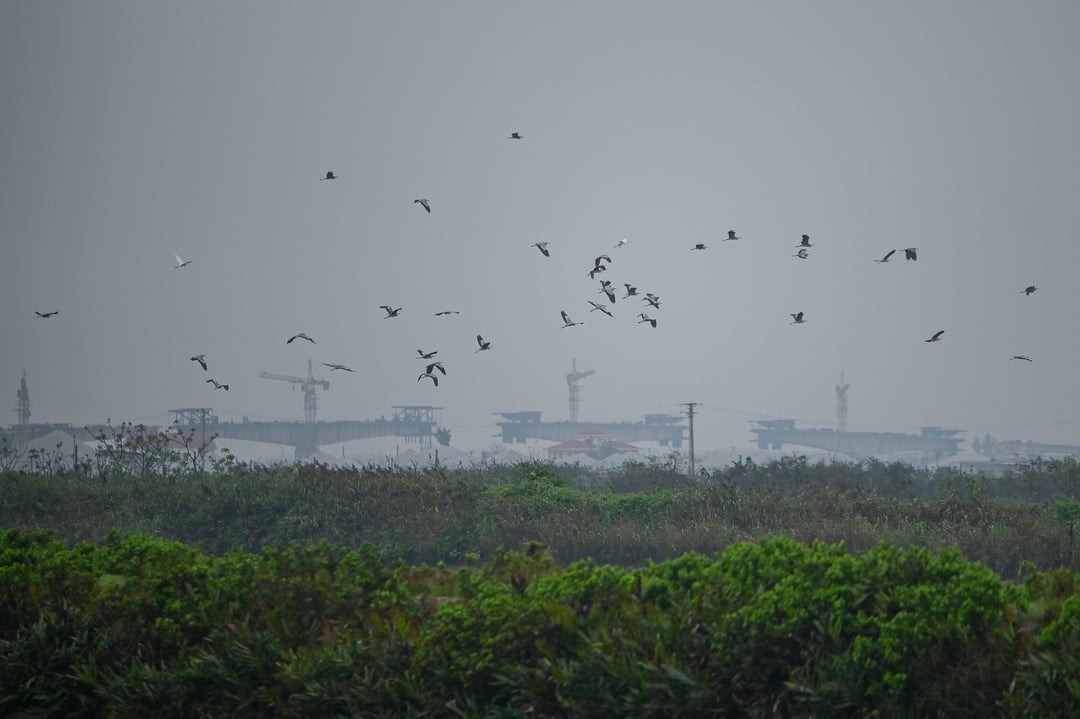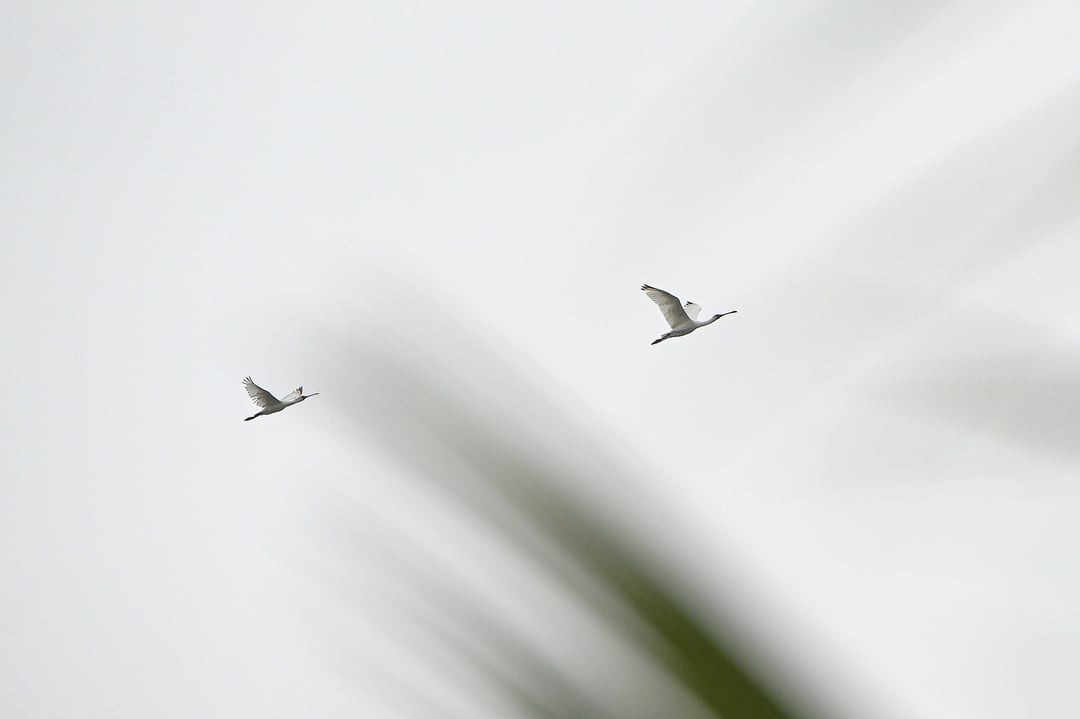Rare black-faced spoonbills spotted at Xuan Thuy National Park
Thứ Tư 20/03/2024 , 11:43 (GMT+7)(VAN) The black-faced spoonbill (Platalea minor) is an avian species endemic to the East Asian region, currently classified as Endangered (EN) in the IUCN Red List and the Red Book of Vietnam.

One of the rare migratory bird species that annually visits Xuan Thuy National Park, and serves as an emblem for the park, is the rare black-faced spoonbill (scientific name: Platalea minor). This species has been classified as Endangered (EN) in the Red List compiled by the International Union for Conservation of Nature (IUCN).

Xuan Thuy National Park, Vietnam's first Ramsar site, is a rare sanctuary for the black-faced spoonbill in Vietnam. The park also serves as a habitat for several other extremely rare and endangered bird species, such as the black-faced spoonbill, spoon-billed sandpiper, and Chinese egret.

A typical migratory bird season lasts from September to April of the following year. During this season, bird species from the northern regions move southwards to avoid the cold, and Xuan Thuy National Park serves as a primary stopover for them. According to the Management Board of the Xuan Thuy National Park, an extensive range of birds migrate to inhabit and forage in the wetland areas of the park during the migratory bird season every year.

Most notably, the black-faced spoonbill is classified as an endangered, rare, and precious species, receiving prioritized protection under Appendix I of Decree No. 64/2019/ND-CP amending Article 7 of Decree No. 160/2013/ND-CP regarding the criteria for identifying and the management regime for species listed as endangered, rare, precious and prioritized for protection.

Regarding the black-faced spoonbill, Xuan Thuy National Park is renowned for hosting the largest population of this avian species in Vietnam. Mr. Pham Vu Anh, Deputy Director of the park, highlights the significance of the black-faced spoonbill as a distinctive avian presence within the wetland ecosystems. With its identity as a rare and invaluable species, the black-faced spoonbill requires strong monitoring and conservation measures.

According to Mr. Le Tien Dung, a staff member of the Conservation of Natural Resources and Environment Department at Xuan Thuy National Park, the 2023-2024 migratory bird season saw the largest number of black-faced spoonbills ever recorded within the park, with 103 individuals migrating to the region to avoid the cold.

According to park officials, the black-faced spoonbill originates from North Korea and Russia. The species has the habit of flying to this region in Vietnam to escape the cold until the end of April, before returning to the North. The presence of black-faced spoonbills often indicates an abundant and diverse food source within the vicinity. Consequently, the black-faced spoonbill has been regarded as an indicator species, representing the top of the food chain.

After migrating to Vietnam in winter, the black-faced spoonbill forages for food along the intertidal zones of river mouths. Its diet consists of small fish and other aquatic organisms. Globally, this species is found in North Korea, southern Japan, and along the eastern coast of China. The worldwide population of black-faced spoonbill currently stands at just over 200 individuals.

In addition to the black-faced spoonbill, Xuan Thuy National Park also serves as a gathering site and wintering ground for numerous common waterbird species during migration season. Along their extensive migratory routes, various avian species have chosen the park as a stopover to feed and replenish energy for upcoming breeding seasons.

According to the park's reports, Xuan Thuy National Park is currently the habitat of 222 bird species, predominantly waterbirds, including over 100 migratory species, and numerous species listed in the world's Red List such as spoon-billed sandpiper, pelican, black-faced spoonbill, spoon-billed plover, seagull...
Translated by Nguyen Hai Long



